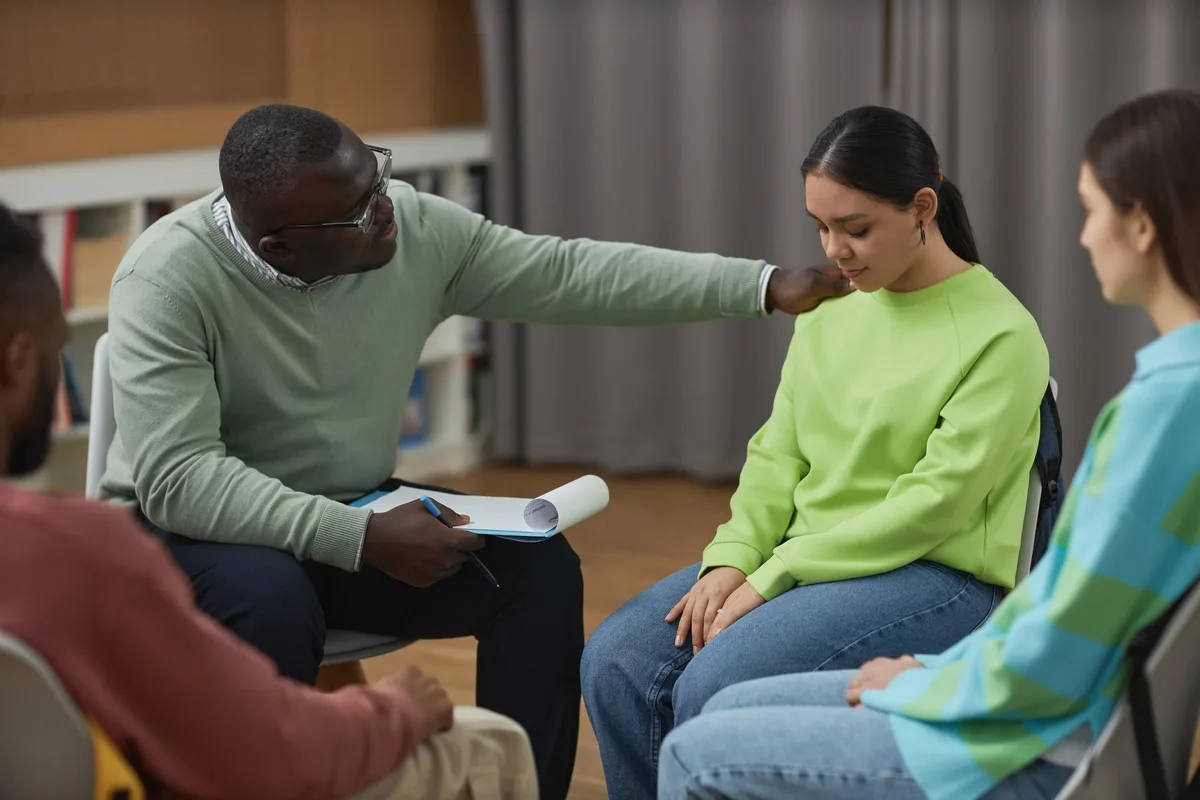24/7 Helpline:
(866) 899-111424/7 Helpline:
(866) 899-1114
Learn more about PTSD Rehab centers in Morristown
PTSD Rehab in Other Cities

Other Insurance Options

Sliding scale payment assistance

Optima

Magellan Health

Ceridian

Group Health Incorporated

Aetna

WellPoint

BlueCross

Health Partners

GEHA

Optum

Regence

Carleon

Medical Mutual of Ohio

ComPsych

Providence

Horizon Healthcare Service

BlueShield
Beacon

Evernorth


Village Network – Brite Futures
Village Network – Brite Futures is a private rehab located in Saint Clairsville, Ohio. Village Netwo...

Crossroads Counseling Services
Crossroads Counseling Services offers outpatient services for individuals struggling with substance ...
















































































































































































































Tri County Help Center
Tri County Help Center is a private rehab located in Saint Clairsville, Ohio. Tri County Help Center...
































































































































